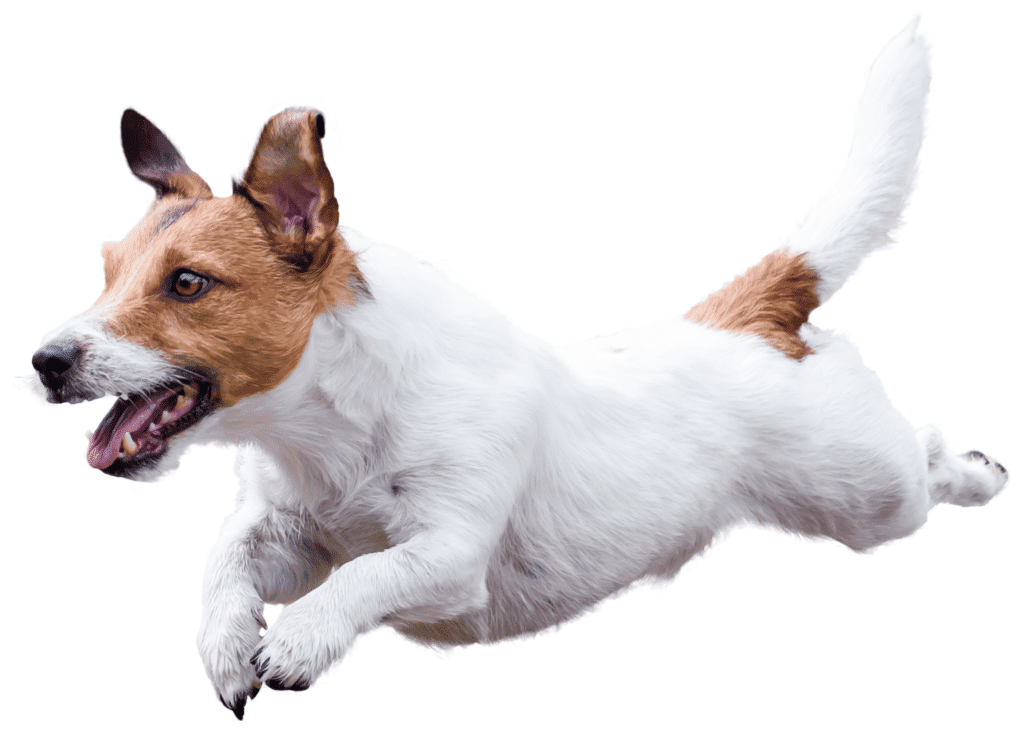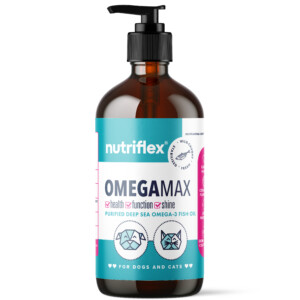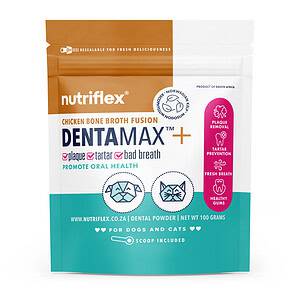Omega-3 For Dogs
Chia seeds are a nutritional powerhouse and an excellent source of essential Omega-3 fatty acids.
odourless, tasteless, fish-free alternative Omega-3 joint-support and immune booster
Chia, or Salvia Hispanica, are the forgotten crop, first cultivated by ancient civilisations. These tiny black seeds are an incredibly nutritious and fantastic source of Omega-3 fatty acids.
Because of their documented ability to increase stamina and energy for prolonged periods, Aztec warriors and athletes are believed to have sustained themselves; their abundant energy and endurance levels on just one tablespoon (15 grams) of chia seeds a day. These tiny black seeds are an incredibly nutritious and fantastic source of Omega-3 fatty acids.
Related to the mint plant family, Chia seeds are a gluten-free source of oil (34%), protein (23%) and fibre (25%) and are an excellent source of B vitamins, essential Omega-3, 6 and 9 fatty acids and antioxidants.
Omega Fatty Acids
Chia seeds contain more than 3 times the amount of Omega-3 fatty acids found in raw salmon! Daily supplementation with Omega-3 for dogs promotes:

Two tablespoons of chia seeds deliver the perfect 3:1 ratio of Omega-3 to Omega-6 fatty acids which can also help prevent and reduce inflammation.
Packed with Fibre
Chia seeds packed with fibre (34grams per 100g of seeds), are essential for digestion and nutrient absorption. They can also help relieve constipation, generate regularity and promote weight loss. Dogs suffering from impacted anal sacs will also benefit from added fibre.
Chia Superfood
Chia seeds can absorb 12 times their weight in water, creating a gelatinous substance that, when consumed, slows down the conversion of carbohydrates into sugar which has a positive impact on levelling blood sugar. Stable blood sugar contributes to normal metabolic function and naturally high levels of energy. Slowing down a dog's digestion also enables improved absorption of nutrients while they feel satiated for longer.
Prevent Manganese Deficiency
Many commercial dog food diets lack manganese, which according to some veterinarians is why so many dogs experience partial or full cruciate tears. Chia seeds are a rich source of manganese (2.72mg per 100g Chia). Manganese is a great source of antioxidants which can:
- Promote bone health
- Reduce swelling which eases joint discomfort
- Help regulate blood sugar
- Support a healthy metabolism
- Improve brain function
- Support thyroid health
Did you know?
Chia seeds are one of nature's forgotten superfoods. These mighty little seeds pack a huge nutritional punch and deliver more iron than raw spinach, more calcium than milk and more magnesium than broccoli. Chia seeds are non-allergenic and are an excellent source of essential minerals: manganese, phosphorus, potassium, copper, iron and zinc. These minerals support healthy bone development, repair and maintenance while helping to prevent the onset of joint-mobility issues. Chia seeds also offer vitamins A, B, E and D as well as niacin, iodine and thiamine.
High in Protein
Whilst not a primary source of protein Chia seeds contain 23% plant protein, which when combined with meat protein collectively help build and maintain lean muscle mass.
How much Chia should I feed my dog?
Chia seeds deliver an odourless and tasteless nutritional boost and only 1 gram of Chia seeds as Omega-3 is required for dogs per 5kg body weight or:
Small Breed: (pet weight: 5kg-10kg) : 1 Teaspoon daily
Large Breed: (pet weight 21kg-45kg) : 2 Teaspoons daily
Because Chia seeds are highly absorbent, they should only be fed as Chia gel (pre-soaked in water) or ground into a fine powder. Sprinkle onto or mix the required amount with a dog's food.
SHARE ON WHATSAPP
SHARE ON TWITTER
SHARE ON FACEBOOK
SHARE VIA EMAIL
SHARE ON WHATSAPP
SHARE ON TWITTER
SHARE ON FACEBOOK
SHARE VIA EMAIL
Quick tips for managing your pets' joint discomfort:
-
OmegaMax – Omega-3 Fish Oil for Dogs and Cats 250ml
Original price was: R465,00.R395,00Current price is: R395,00. Buy Now

MORE YEARS MORE LOVE
CREATED BY NATURE — CRAFTED BY NUTRIFLEX® — LOVED BY ANIMALS
VITALITY MOBILITY LONGEVITY
The information appearing on this website is for educational and informational purposes only. Information and products are not intended to prevent, diagnose, treat or cure any disease or condition.

